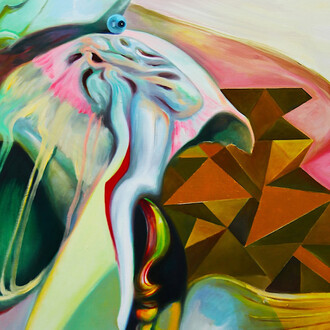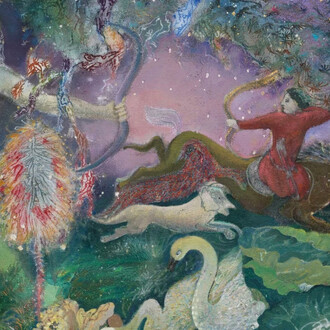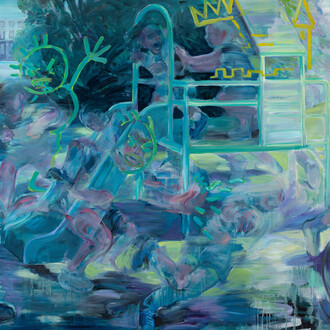Iconic front-page news photography from the 20th century will be on view at Howard Greenberg Gallery from September 12 through November 16, 2024. Extra! Extra!: news photographs from 1903-1975 presents unforgettable images from a wide range of historical events including the arrival of the first Ford car, voting rights protests by the suffragists, the detonation of the atom bomb, baseball highlights, Civil Rights activities, political assassinations, Woodstock, and the Vietnam War. Together the photographs form an extraordinary visual history of the United States during the last century.
In most cases, the works on view represent the earliest known published prints, with each print featuring detailed provenance meticulously inked and stamped, documenting its historical journey from newsroom to printed page. This careful record provides invaluable insight into the print's origins, including its initial publication, subsequent ownership, and any historical events it has been associated with. Such thorough documentation enriches our understanding of its significance and the context in which it has been preserved over time. The exhibition will feature the notations on the backs of the images as well.
Extra! Extra!: news photographs from 1903-1975 features more than 60 photographs and draws on a collection of nearly 250 prints assembled by Dan Solomon and Howard Greenberg. A number of the prints are by well-known photographers including Robert Capa and W. Eugene Smith; many of the photographers are unknown. Major news makers of the 20th century are shown including Muhammad Ali, Neil Armstrong, The Beatles, Amelia Earhart, Martin Luther King Jr., Patricia Hearst, Jackie Robinson, Babe Ruth, and the Wright Brothers.
Solomon began collecting the images more than 20 years ago by working with media outlets who were digitizing their archives, including The New York times, Time-life, The San Francisco examiner, and The Cleveland plain dealer. He was initially inspired by the shocking 1963 image of a self-immolating monk in Saigon by Pulitzer Prize-winning photographer Malcolm Browne. Solomon turned over a print of the iconic image and noticed numerous stamps and information on the back. “The print had a presence and the aura of a powerful object connected to history and the dissemination of information. I immediately asked how I could see more”, he said.
“This collection of iconic images includes many rare and important prints and is distinguished from all others”, said Howard Greenberg. “We had the good fortune to be able to acquire important first and second generation ‘press’ prints at a time when certain archives were beginning to sell photos from their files”.
Far from pristine, each photograph in the exhibition has been handled and exhibits a rich history on the front and back including crop lines, grease pencil markings, date stamps of when the photograph was run, captions used by the newspaper, credit information, and other background notes. Together the prints in the exhibition show photojournalism in action. For example, a 1968 photograph by the Associated Press’s Eddie Adams of a South Vietnamese officer executing a Viet Cong prisoner has numerous credits and notations including a clipping from a newspaper noting “Too violent?! The question of whether scenes such as this, showing the execution in Saigon of a Vietcong prisoner, should be shown on television was deleted at the hearing”.
Similar prints in Extra! Extra!: news photographs from 1903-1975 were included in Pictures of the Times: A Century of Photography from The New York Times, an exhibition at the Museum of Modern Art (MoMA) in 1996 based on a gift of news photography from The New York Times to MoMA. New York Times writer Wiliam Safire wrote an essay in the catalogue noting, “Photojournalism confronts an unfolding drama and freezes the frame, refusing to let the fleeting instant flee. It stops the world at that moment of history and lets us get on”.
















